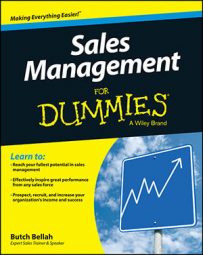As a sales manager, you will have some sales people who are not top performers, but still have potential to grow. For this example, let's call the B and C players. These players aren't your superstars, but they're still important to your team's success. And they're likely the majority of your team, making up 70 to 75 percent of your sales team.
You cannot ignore your top talent, but the fact is that most of your time will be spent on this group — the B and C players. Your job is to determine what's keeping this group from reaching the top tier and what you can do to help them maximize their potential.
To determine which of your B- and C-level performers can rise, you must first identify why they're in this group to begin with and what's holding them back. You have to ask yourself:
Are they here because of talent level — is this the best they can do?
Are they here because of poor practices?
Are they here because of a lack of training?
Are they here because they're satisfied with this level?
Are they moving up or down? Are they top players regressing or bottom players improving?
Let's tackle talent level first because it's probably the easiest to identify. If these members of your sales force are truly trying and simply performing at this level, that's completely acceptable. One of the quotes you can build training on is this one, by Butch Bellah: "It's okay to settle for less than the best, but not less than your best!"
If your mid-level players are making the required number of calls, asking the right questions, qualifying the prospects, asking for the sale, and doing all the things a salesperson must do in order to be successful and their results are just not at superstar level, that's okay.
There's no crime in that. It's something you can work with. Their talent level may define where they are today, but it doesn't have to be the key to their destination.
Your job as a sales manager is to take the natural talent of your team and help them get the most out of it. You have to assess the reason they're underperforming: Is it lack of ability or lack of desire? The former is solvable, the latter not so much.
Your B- and C-level players are the ones you work with to improve every aspect of the sales process. They can potentially land in the A group with the right challenge, support, and continued training.
It may take a bit of research and time spent with the individual to determine whether some team members aren't using the best practices. Perhaps they've fallen into some bad habits — they're not making the calls, they're not giving it their all. If this is the case, you owe it to them, their family, and the company to raise the bar immediately.
If some of your salespeople have accepted mediocrity when they shouldn't, you have to take that crutch away. This involves training them, coaching them, and helping them grow. Will they ever make the top group? Maybe not, but you can get them to be better than they think they can be, and that's the most you can ask for.
If members of your team are underperforming due to a lack of training, it's not their fault and it can be corrected.
Give your salespeople the opportunity to ask questions — almost like an amnesty period when they can ask anything. You'll be surprised at the questions uncovered. And you get a great idea of what areas your team needs to be trained in. Is it prospecting? Asking for the sale? Qualifying? Who knows until you get them to tell you where they feel the most uncomfortable.
But, please let them know one thing: You don't care if they don't know everything . . . today. Now, if they still don't know a month or six weeks from now, it's their own fault.
Although everyone needs your attention on your team, the B and C players are the ones you're paid to really help. This is why you have a job. If everyone were in the Top Performers group, the company probably wouldn't need you. And, if everyone were in the D and F group, you wouldn't need the company!
Be prepared to spend the majority of your time with this group of individuals: finding each of their weaknesses and helping them grow.

